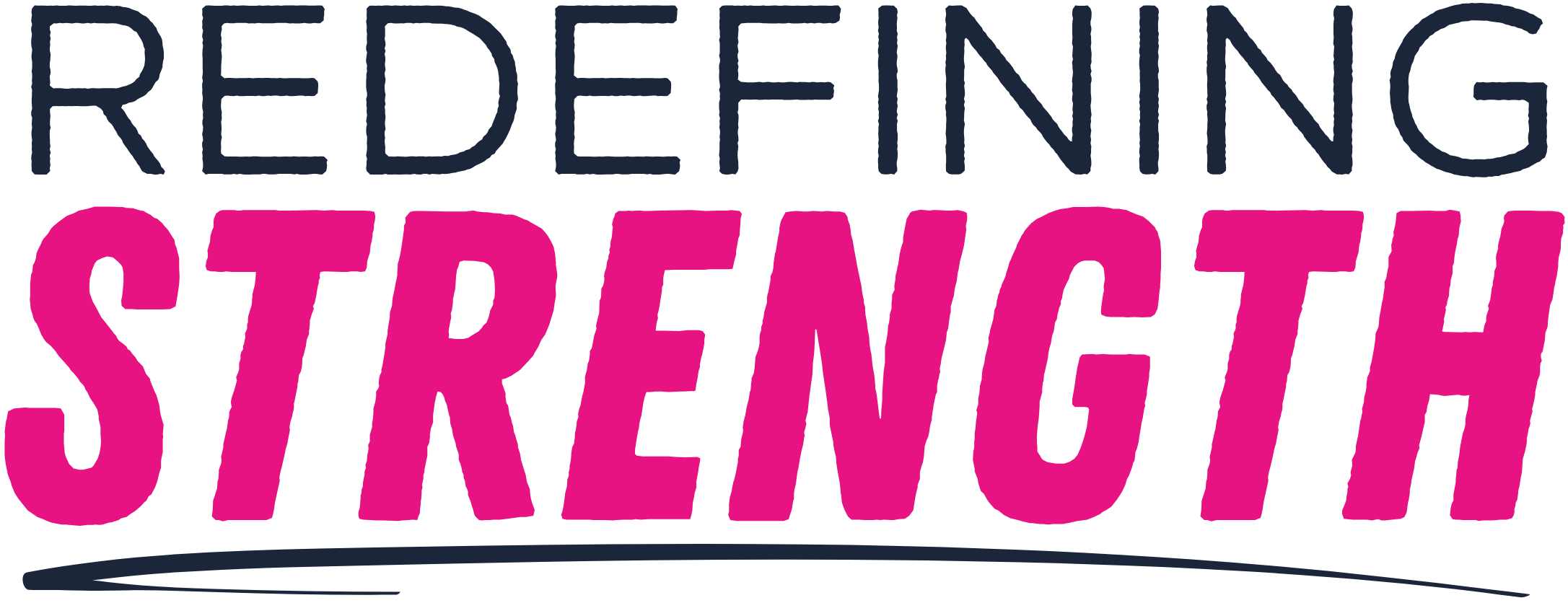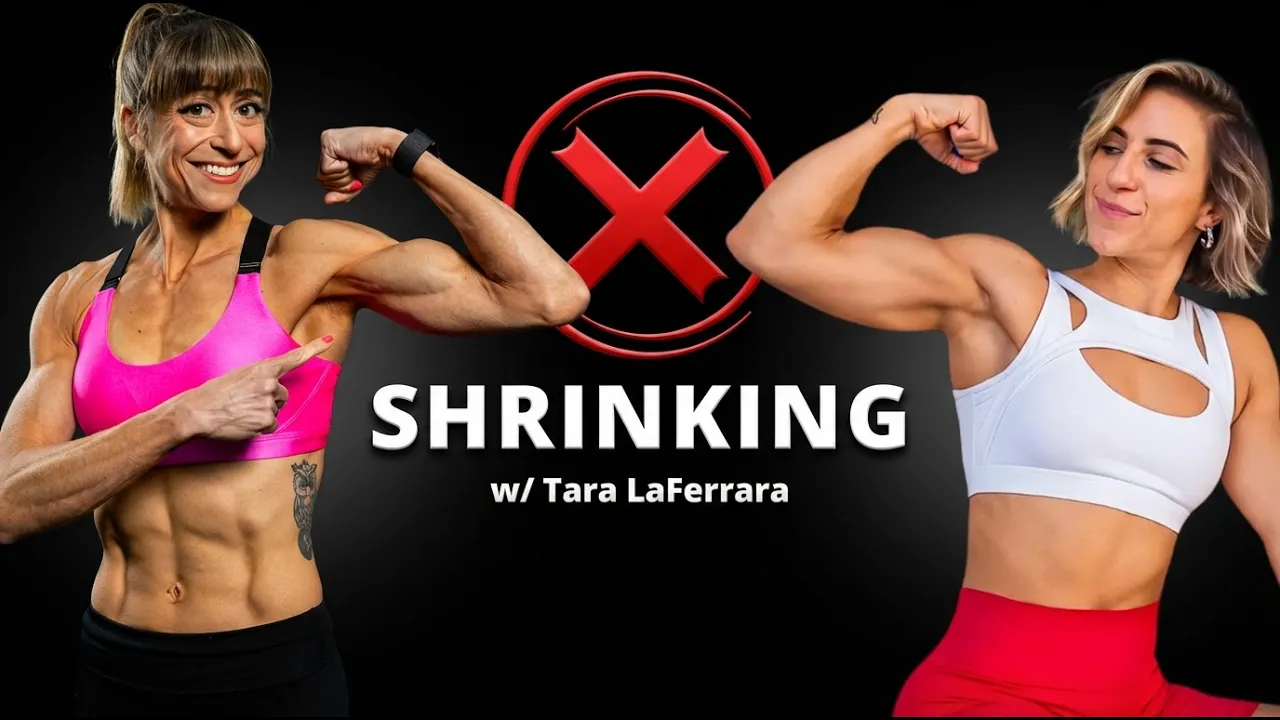If you’re working to lose fat as you build muscle, you may have been told to increase your protein intake.
And you should.
But eating more protein isn’t just beneficial for body recomp…
It’s also good for your health and staying functionally fit until your final day on this planet!
So if you’ve been avoiding increasing your protein intake, I want to help you value this change and prioritize it by understanding fully why it is so key.
Because we prioritize and embrace hard changes that we value.
Here are 10 reasons why increasing your protein is so key.
But before I dive into these amazing benefits of protein, I do want to give one word of warning, specifically about all those high protein labeled foods you may turn to…
Just because something says it’s high protein doesn’t mean it is.

In the US, a food can be labeled as “high protein” with just 10 grams of protein in a serving.
Which, don’t get me wrong, that may be the boost you need while helping you strike a lifestyle balance.
A high protein granola may help you strike balance and keep in your breakfast parfait while rocking your macro ratios…
But you want to be aware that you may not actually be getting that much protein just by eating foods labeled “high protein.”
Your best bet for increasing your protein are things like meat – chicken, beef, seafood –
Or if you’re plant-based – tofu, tempeh, seitan…
However, if you’re already increasing those protein portions and want other options…
Plus you’re tempted by protein cereals or granolas or such to help strike your sustainable nutritional balance…
You can use this trick to help you figure out the protein density of foods and ones that may be more valuable for your goals.
Take the calories on the label and move the decimal over one to the left.
If a cereal is 160 calories, that means the number you’re now looking at is 16.
If the protein on the nutritional label is 16 grams or greater, that food is actually going to be protein dense.
Under that amount and you know you’re not looking at a protein dense food.
Now, the 10 reasons to increase your protein…
#1: It helps build and maintain lean muscle mass.
Grip strength is a key indicator of longevity…
And guess what’s needed for a strong grip?
MUSCLE.
Muscle is magical and involved in keeping our body healthy in so many ways, supporting everything from bone to brain to metabolic health,
So we need to do everything we can to maintain and even build it.
Especially since, as we get older, our risk of sarcopenia, or muscle loss, increases and we are less able to utilize protein as efficiently to repair and rebuild.
So increasing our protein, the amino acids that are the building blocks of muscle, as we get older is so key.
#2: It improves hormonal balance.
Most people think of protein as just the building blocks of muscle, but it’s also the building blocks of many hormones and neurotransmitters.
Without enough protein, your body struggles to make and regulate the powerful chemical signals that tell your body when to burn fat…
When to feel hungry or full…
When to calm down…
When to feel energized and even when it’s time to sleep.
And especially as women enter perimenopause and menopause, protein is one of the most powerful dietary tools we have to feel more balanced, energized, and in control of our body composition.
#3: Protein keeps bones healthy.
As we get older our risk for falls and fractures increases.
Protein helps us not only build muscle to react to avoid falls and slips that may impact our bone health…
But it also provides amino acids to strengthen our bones while supporting calcium absorption.
Add lifting weights to the mix and you create the perfect recipe for improving bone density and staying strong and stable.
#4: It improves mood and helps us manage stress.
Again…protein isn’t just for your muscles.
It’s also fuel for your brain and nervous system.
The amino acids from protein are used to make key brain chemicals things like:
Serotonin, which supports calm and happiness.
Dopamine, which helps with focus and motivation.
And GABA, which plays a big role in relaxation and stress control.
Together, these chemicals help keep your mood steady, your stress in check, and your energy more consistent.
Protein also helps keep your blood sugar steady, which prevents the crashes that can trigger irritability, anxiety, and fatigue, which is especially helpful for anyone going through perimenopause or menopause.
That’s why making every meal protein-centric is one of the simplest and most powerful ways to improve your mood, sharper your focus, and increase your mental resilience as you get older.
#5: Protein supports brain health and cognitive functioning.
Protein does this both directly and indirectly.
Indirectly, protein helps you build and maintain lean muscle mass.
Strong muscles improve circulation, stabilize blood sugar, reduce inflammation, and are linked to a lower risk of dementia.
Directly, protein fuels your brain by providing amino acids to make neurotransmitters (like serotonin, dopamine, and acetylcholine)…
Supporting nerve protection and repair…
Keeping blood sugar steady for consistent focus and mental clarity…
And reducing oxidative stress that damages brain cells.
During menopause, these benefits become even more important.
Protein helps protect against brain fog and memory lapses by supporting neurotransmitters, stabilizing blood sugar, and improving mental clarity and focus
By eating enough protein and keeping your muscles strong, you’re not only supporting better mood, focus, and memory now, you’re also investing in long-term brain health and lowering your risk of age-related cognitive decline.
#6: It improves your cardiovascular health.
You might be raising your eyebrows at this one…
After all, when we think “protein,” many of us think of heart issues, especially with red meat and saturated fat.
But here’s the truth:
Getting enough protein, paired with heart-healthy fats, actually supports your cardiovascular health.
It helps lower blood pressure, improves cholesterol and triglyceride levels, and keeps arteries more flexible instead of stiffening with age.
Protein also stabilizes blood sugar, reducing another major risk factor for heart disease.
And let’s not forget…protein builds muscle.
And strong muscles directly benefit your heart by boosting circulation, improving blood sugar control, and lowering inflammation.
All of this becomes even more important as women enter menopause.
As estrogen levels decline, blood pressure often rises, cholesterol worsens, and blood sugar becomes harder to manage.
All of this puts extra strain on the heart and blood vessels.
So if you’ve been on the fence about protein, hopefully you’re starting to see its benefits!
#7: Protein supports quality sleep and recovery.
Want to fall asleep faster, sleep deeper and reduce fatigue and muscle soreness?
Yup. Protein is key for all of these things!
Protein provides amino acids like tryptophan, which your body uses to make serotonin (a calming neurotransmitter) and melatonin (the sleep hormone).
This helps improve both your ability to fall asleep but also how restorative your sleep is.
Protein also helps stabilize blood sugar throughout the day, preventing the night-time crashes and stress signals that often disrupt sleep.
This is something that becomes especially important during menopause, when sleep issues are more common.
And when it comes to recovery, protein is literally the fuel your body needs to repair muscle tissue and rebuild stronger.
Without enough of it, you can end up training hard but never seeing the muscle or strength gains you want and staying sore much longer than you should!
#8: It improves insulin sensitivity and body composition.
Notice where you’re storing fat has changed? That you’re seeing your waistline spread a bit with middle age?
Don’t just write it off as getting older.
Increase your protein intake!
One of protein’s biggest benefits is how it supports healthy blood sugar and insulin levels.
When we eat enough protein, it slows digestion, reduces blood sugar spikes and crashes, and helps us feel fuller for longer, which means fewer cravings and less overeating.
Protein also supports lean muscle, and muscle is one of the body’s best tools for managing blood sugar because it soaks up glucose and uses it for energy.
Simply put – Stronger muscles = better insulin sensitivity.
And while these benefits matter at any age, they become even more important during menopause when hormonal shifts can make it easier to store fat around the abdomen and harder to regulate blood sugar levels.
#9: It keeps your gut healthy.
Your gut does more than just digest food.
It’s also where nutrients are absorbed and where much of your immune system lives.
As we age, digestive enzyme activity can decline, which makes it harder to break down and absorb nutrients as efficiently.
This is where increasing protein can help.
Certain amino acids, like glutamine, help maintain the integrity of your gut lining.
This lining acts like a filter, letting in the nutrients your body needs while keeping out unwanted particles that can trigger inflammation.
Protein also supports the production of digestive enzymes that help you break down food more effectively.
And during menopause, when bloating and digestive discomfort often increase, protein helps support gut function and reduces inflammation so your digestion feels smoother and more balanced.
And finally, even though I know you’re already sold on increasing your protein…
#10: Protein strengthens your immune system.
As we age, our immune system naturally slows down.
This can make it harder to fight off infections, heal quickly, or keep inflammation under control.
Protein directly supports your defenses by providing the amino acids your body needs to build antibodies, immune cells, and glutathione, which is one of the most powerful antioxidants, protecting cells from damage.
And because so much of your immune system actually lives in your gut, protein’s role in maintaining your gut health further supports a strong, balanced immune response.
This is even more important during menopause, when hormone shifts can increase inflammation and make the immune system more vulnerable.
So increasing your protein intake?
It isn’t just key for your aesthetic goals although it will help you look fabulous.
It’s the key to staying fit, healthy, strong and resilient till your final day on this planet!
Dial in your diet to match your workouts and build your leanest, strongest body ever with my Metabolic Shred…
–> LEARN MORE




0 Comments